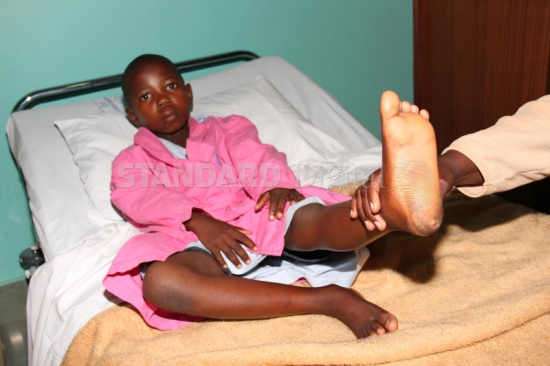×
The Standard e-Paper
Smart Minds Choose Us

Twenty eight children from Busia County with partial paralysis will be treated at no cost at Nairobi Hospital in an ongoing investigation of medical negligence.
In a meeting held Friday at the hospital where the children and their parents were admitted, Health Cabinet Secretary James Macharia assured them that they would get appropriate treatment to ensure they are whole again.